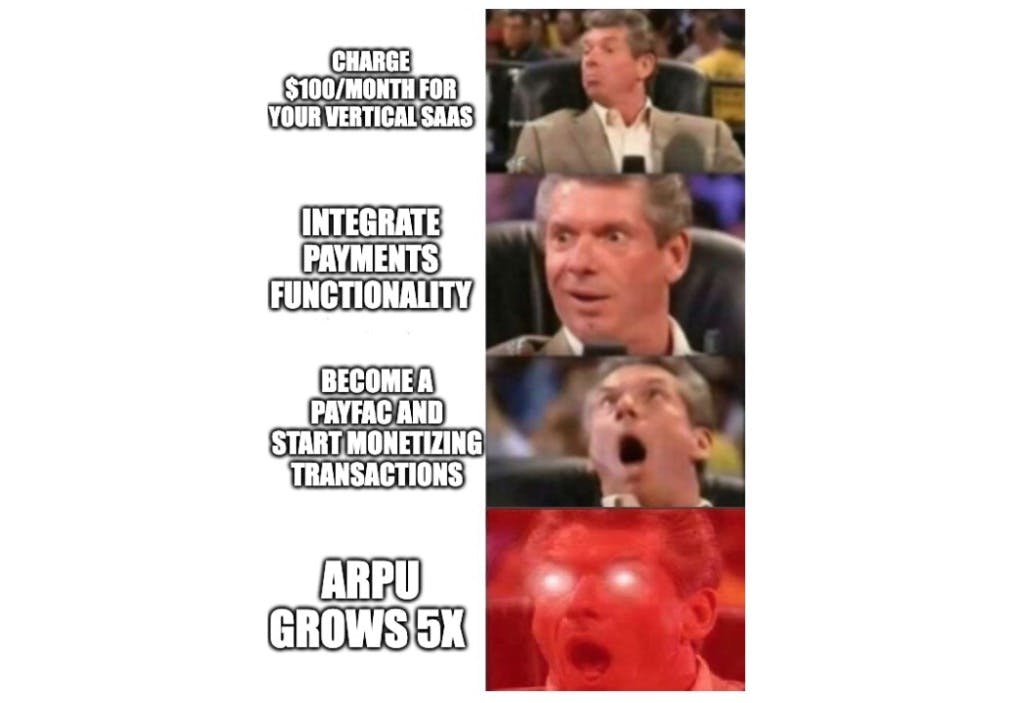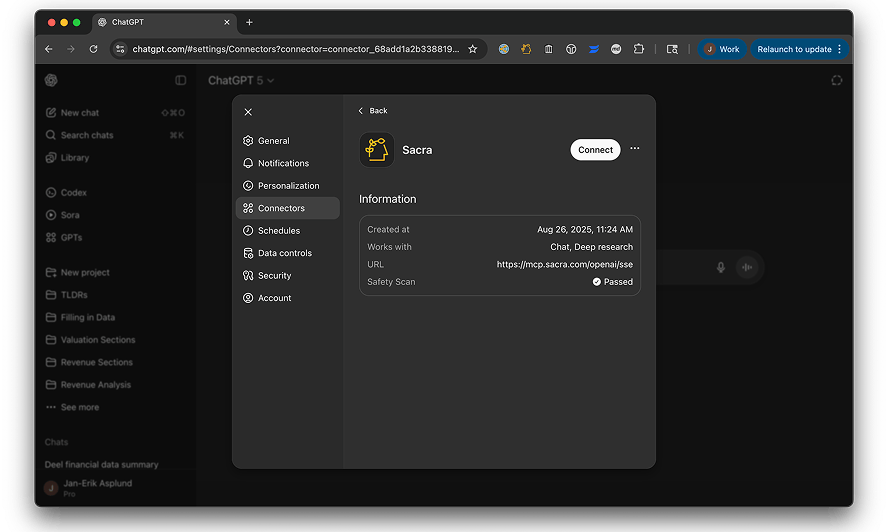Hi everyone 👋
Sign Up Today!
To get these right in your inbox
As millions of businesses join the digital economy to meet the shift in demand online, they’re not cobbling together point solutions or rolling their own software—they’re signing onto platforms.
Whether Shopify ($170B) for retailers, Toast ($17B) for restaurants, or ServiceTitan ($9.5B) for home services, it’s the all-in-one platform that’s helping new merchants get online and start accepting payments. In turn, we’re seeing the rise of fintechs that help those platforms monetize those payments.

We’ve looked at how banking-as-a-service and card issuing companies allow platforms to monetize via interchange. But a big one that is positioned directly against Stripe’s core product of payment facilitation is Finix, which enables platforms to become payment facilitators and monetize the transaction volume that occurs through their merchant-customers.
To better understand the economics of payment facilitation and who should be bringing payments in-house, we talked to Jareau Wadé, Chief Growth Officer at Finix. Here are some of our key learnings:
"[With a traditional 3rd-party payments provider] if they want to inquire about settlement, funds delivery or a dispute or chargeback, they have to go to the payments processor. Not the software vendor, who might be the primary relationship and the reason that they have that payments provider… [Whereas] if you're getting your payments and your software from one provider and it's a great experience... that relationship will exist longer into the future, which pushes up your lifetime value." (link)
"Let's say you're BigCommerce and you have integrations with multiple payments providers. [Customers] can bring their Fiserv, their Worldpay, their Stripe account and then plug it into your software. I don't know if I would call that network effects… [what’s happening more is that] you choose the application first, and then financial services are provided either under the hood or behind the scenes by another party that is usually brought in through a set of options." (link)
"I think a lot of people bring a merchant-focused understanding to our space. I am very confident that if you look forward and at payments specifically -- looking across neobanks and all these other fintech apps -- the way that new users, both merchants and consumers, are going to come into the digital economy and the fintech space is through platforms: Square, Cash App, Chime, Toast, Lightspeed… [P]latforms are the engine that's going to drive not only financial inclusion, but also the bedrock of the economy." (link)
Ramp CTO Karim Atiyeh on card issuing
Ramp can offer their expense management platform (going after both $AMEX and $BILL) for free because they monetize off of interchange for transactions on their corporate card.

For more on how banking-as-a-service enables companies like Ramp to monetize on the back-end and give away their product for free, read our full interview with Karim here.


